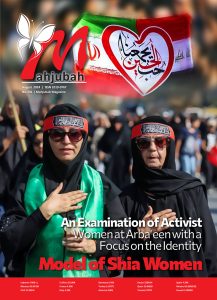Rostam1 won the battle with Sohrab but was defeated by history. This story is the narrative of the tragedy of the battle between a father and his young son by Ferdowsi, the famous Iranian poet, which determines the real winner and loser of each battlefield.
The reality of this narration is now clearly visible in the unequal battle between the occupying regime of Israel and Palestine and Gaza. Although the resistance of the Palestinian fighters may, apparently, fail in the field, its people fall prey to atrocities, and many civilians, including Palestinian children, women, and men, get martyred because of the nastiness and cruelty of the opponent, but, in reality, the victory will be of that front whose goals and ideals will, eventually, be realized and the narrative of its being oppressed will reach the heart of history.
The cause of resistance is the raising of the flag of freedom over the “Holy Quds” and “Saving Palestine,” which is now being shouted in all continents and cities, and the issue of Palestine has returned to the focus of public opinion and the “fake narrative” of the beastly Zionist regime that has been portrayed for decades has collapsed.
It is a narrative, a major part of which is borne by the women of Gaza, who, through their resilience in the middle of the ruins of their houses and while undergoing great sadness of losing their beloved children, convey an important message to the world, and have risen against the collapse of the borders of humanity, honor, and religion, and changed the state of the world from falling into deep sleep and turning a blind eye to the crimes of oppressors and the state of the oppressed.
It is a narrative that informs about the confrontation be tween the two fronts of right and wrong, and good and evil. And as evidenced by history, the founder of this style of resistance was “Hazrat Zainab” (SA). A style that has its roots in the depths of one of the most important socio-political events in human history: The Incident of Karbala.
Hazrat Zainab was a woman who traversed the path that she knew involved hardships, losses, and separations, in order to support the Imam of the Ummah in his battle against the power-seekers who used religion as a mask for their selfish desires and were responsible for removing the spirit of religion from society and subjecting people to oppression. And if it wasn’t for Zainab, in the battle where the Imam of the time and all his companions were martyred in the most brutally possible way, a fake news about the incident of Karbala would have been broadcast in history, and the truth would not be exposed. It was with the help of Hazrat Zainab’s saga that blood won over the sword, and history came to consider the Mujahideen of Karbala the conquerors of hearts and the key to exposing the world’s sufferings. It was through her efforts that Imam Hussain’s school of thought became a role model for all those who confront humiliation and resist oppression around the world.
The greatness of Zainab (SA) does not come from being the daughter of Ali ibn Abi Talib (AS) or the sister of Imam Hasan and Imam Hussain (AS), but from founding a school of thought: the “school of womanly resistance” and the style of “dignified life”.
This school represents the highest level of womanly activism, changing stereotypical views of women as weak, inefficient, and ruled by emotions, into strong beings who can control their emotions and be strategic in the face of adversity.
Zainab fought, not with a sword like men, but in her own way. Despite the immense grief of losing her brother, her own sons, and the closest companions of the Imam, she did not give up or surrender.
By leading and guiding the other women present in Karbala, she added certain pages to the history of the incident. Firstly, she turned the military defeat of the right forces into a definitive and lasting victory. Secondly, she managed to humiliate Yazid, the so-called victorious enemy, who had apparently won the military campaign and assumed the throne of victory. She stamped shame on his forehead and turned his apparent victory into a major defeat.[1]
1- One of the heroes in Iranian tales.
[1]. Adopted from the speech of the Supreme Leader of the Islamic Revolution in a group meeting with a group of nurses on 21/04/2010.
by: Sima Bagherzadeh
View this article in Mahjubah 341




